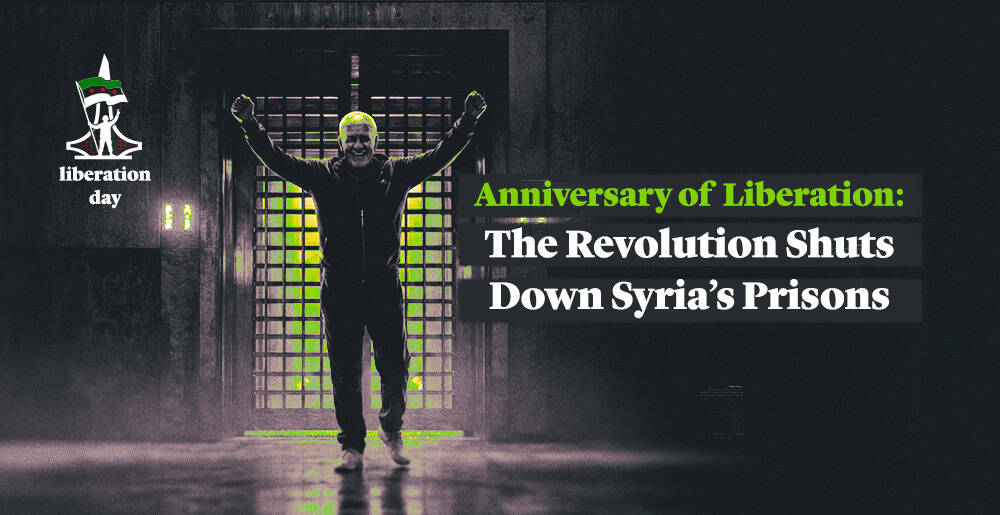Nawaf Salam Named Lebanon’s New PM Amid Complex Challenges and Tense Ties with ‘Israel’

Nawaf Salam faces economic challenges and the task of leading the country toward a new era of revival.
After much anticipation, the first day of Lebanese President Joseph Aoun’s parliamentary consultations to nominate a prime minister concluded with support for Judge Nawaf Salam, President of the International Court of Justice, to lead the next government.
On January 13, 2025, President Aoun appointed Salam, 71, to form the new government. A seasoned diplomat, Salam’s nomination was largely backed by opposition political forces critical of Hezbollah, which has been weakened by its recent confrontation with “Israel.”
A Constitutional Process
The parliamentary consultations in Lebanon, mandated by Article 53 of the Constitution, occur after a government’s resignation or the end of its term. The president meets with parliamentary blocs and independent MPs individually at the presidential palace, asking them to name a candidate for the premiership. The results are recorded, and the president issues a decree appointing the candidate with the most support.
Salam, who was abroad working at the International Court of Justice, secured the backing of 85 out of 128 MPs during these consultations.
Joseph Aoun, 61, was elected president on January 9, 2025, in the second round of voting, receiving 99 votes out of the 128-member Parliament.
Key contenders for the premiership during Aoun’s term included caretaker Prime Minister Najib Mikati, former ambassador Nawaf Salam, and opposition MP Fouad Makhzoumi, who later withdrew from the race. Salam’s victory is seen as a setback for traditional political parties and an opportunity to reform Lebanon’s institutions, move beyond Hezbollah’s political dominance, and implement the broad agenda outlined by President Aoun.

Life and Career
Born in 1953, Nawaf Salam hails from a prominent Beirut family with deep political roots dating back to the early 20th century. His grandfather, Salim Salam, was a founder of the reform movement in Beirut and served as a deputy in the Ottoman Parliament in 1912.
His uncle, Saeb Salam, served as Lebanon’s prime minister four times between 1952 and 1973, while his cousin, Tammam Salam, held the same position for one term from 2014 to 2016.
Salam earned a law degree from the Lebanese University in Beirut in 1984, a Master’s in Law from Harvard Law School in 1991, and a Doctorate in Political Science from the French Institute of Political Studies in Paris. He also obtained a PhD in History from Sorbonne University.
He has taught at the American University of Beirut (AUB) and other institutions, and has authored several books and studies on international, constitutional, electoral, and Islamic law, as well as on international organizations and global affairs.
Fluent in English and French, Salam is married to Sahar Baassiri, a former journalist and Lebanon's ambassador to UNESCO, and they have two children.
After returning to Beirut in 1992, Salam practiced law at Takla Law Firm and simultaneously began teaching international law and international relations at AUB. He chaired AUB's Department of Political Studies and Public Administration from 2005 to 2007.
Between 1999 and 2002, Salam served as a member of the Executive Office of Lebanon's Economic and Social Council, which provides advice, suggestions, and recommendations on economic and social projects referred by the government.
In 2005, the Cabinet appointed him as a member and rapporteur of the National Commission for Electoral Law Reform, where he contributed to drafting a new electoral law after Syria’s military withdrawal from Lebanon.
From July 2007 to the end of 2017, Salam served as Lebanon’s Permanent Representative to the United Nations in New York. He also participated in field missions of the UN Security Council to countries including Sudan, Afghanistan, and Uganda.
In February 2024, Salam was elected President of the International Court of Justice for a three-year term, having been a member of the court since February 2018. He is the second Arab to hold this position, following Algerian Mohamed Bedjaoui, who served from 1994 to 1997.

Phase Challenges
When Nawaf Salam was elected President of the International Court of Justice, it was hailed as a significant Lebanese achievement in local circles. Yet, Salam's focus remained on his home country, ravaged by corruption in the absence of a functioning judiciary. “My election as President of the International Court of Justice is a major responsibility to uphold international justice and the rule of law,” he posted on X.
“What comes to mind at this moment is my enduring hope for Beirut to reclaim its title as the ‘Mother of Laws’ and for us, as Lebanese, to establish a state governed by law and justice.”
Salam’s earlier aspirations to lead his country, following in the footsteps of his ancestors, faced resistance from Hezbollah, particularly regarding his candidacy for the premiership.
In 2020, Hezbollah opposed Salam's potential leadership, viewing him as the “candidate of the U.S., Gulf countries, and Europeans,” tasked with sidelining Hezbollah. A local pro-Hezbollah newspaper, al-Akhbar, echoed these sentiments, criticizing Salam for not supporting the party during campaigns against it at the United Nations.
Hezbollah's resistance blocked Salam’s bid for the premiership in 2021, despite support from its ally at the time, the Free Patriotic Movement.
The party maintained its stance in the 2025 consultations, where Salam secured the necessary votes to form a government, albeit without backing from Hezbollah and its ally Amal, collectively known as the “Shiite Duo.”
Hezbollah's parliamentary bloc, Loyalty to the Resistance, attempted to delay the vote, a move noted by Elnashra on January 13, 2025. The local outlet described the delay as “clear evidence of the bloc's dissatisfaction with Salam’s nomination, especially amid talks about the Shiite Duo’s preference for Mikati to return as prime minister.”
Despite these political tensions, Salam faces a challenging period ahead as he works to form a cabinet and address Lebanon’s pressing issues.
Economic Challenges
A seasoned diplomat and legal expert, Salam stands apart from Lebanon’s traditional ruling class, often accused of corruption and prioritizing sectarian interests over state-building.
Many view Salam as a neutral figure, essential for steering Lebanon through its ongoing crises. He must tackle the economic collapse that has gripped the country since 2019 and address the aftermath of the devastating Israeli aggression.
The World Bank estimated Lebanon’s material damage and economic losses from the Israeli aggression at $8.5 billion, though Lebanese sources suggest much higher figures. Initial assessments pegged material damages at $3.4 billion and economic losses at $5.1 billion.
In this context, Lebanese writer Ali al-Amin, editor-in-chief of Janoubia, noted, “The appointment of Judge Nawaf Salam as Prime Minister aligns with the election of President Joseph Aoun, forming the foundation for rebuilding the state, restoring sovereignty, and reviving institutions.”
“Today marks the beginning of a transformative process from within the government, driven by changes during the war, including a retreat of Iranian influence. Hezbollah is no longer the sole decision-maker in presidential and governmental matters,” he added in an article published on January 13.
“The fall of the Assad regime played a pivotal role in activating this transformation, effectively removing Iran’s grip on Lebanon and liberating the country from decades of Syrian dominance and a quarter-century of Iranian influence.”

Anti-Israeli Occupation
Nawaf Salam is well-known for his strong stance on the Palestinian cause. He has explicitly stated that “the continued existence of the State of Israel on occupied Palestinian land is illegal.”
During a public session of the International Court of Justice on July 19, 2024, Salam said, “The Israeli settlements in the West Bank and East Jerusalem, along with the system supporting them, have been established and maintained in violation of international law.”
“Annexation signifies the forcible seizure of land by an occupying power, integrating it into the territory of the occupying state, either fully or partially. Therefore, annexation inherently implies the occupying state's intent to exercise permanent control over the occupied land,” he added.
Salam has a history of making statements criticizing “Israel.” On January 22, 2015, he argued that critics of “Israel” are often labeled as anti-Semitic “to intimidate and discredit them.”
“Full membership for Palestine at the United Nations and the end of Israeli occupation remain long overdue,” he posted in 2015.
In his address as Lebanon’s Permanent Representative to the United Nations on January 24, 2013, Salam urged the General Assembly to grant Palestine full membership in the UN. “More importantly, Palestine remains under occupation, and it is our duty and that of the international community to help end the occupation and achieve true independence.”
Sources
- Lebanon’s PM-designate Nawaf Salam promises to ‘rescue, reform and rebuild’
- Nawaf Salam.. For these reasons, “the page was turned” [Arabic]
- The surprise of the binding parliamentary consultations: Ambassador Nawaf Salam as Prime Minister without the votes of 'Hezbollah' and 'Amal' [Arabic]
- A Phoenix of October 17 rises from the ashes [Arabic]
- An unprecedented Lebanese achievement: Nawaf Salam as President of the International Court of Justice [Arabic]











